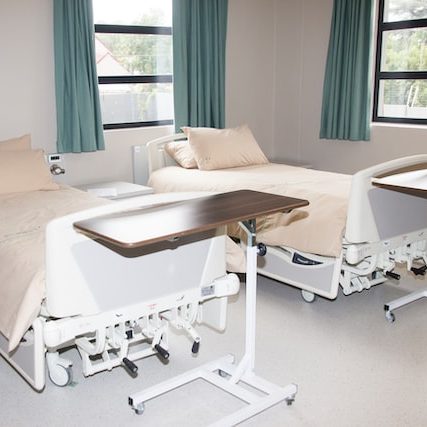
One in five people experience a mental health condition each year
More than two-thirds of people with a behavioral health condition can’t access appropriate treatment for that condition. Ensuring access to mental health and substance use addiction treatment, along with recovery services, could not be more important for many New Hampshire patients and families.
Hospitals have long partnered with the State of New Hampshire on many critical issues, including funding support for both New Hampshire’s Medicaid Expansion program and the State’s substance abuse prevention, treatment, and recovery efforts, and a hub and spoke system aimed at enhancing access to resources for those suffering substance use disorders.
Workforce shortages, limited funding, insurance, and treatment barriers create obstacles to accessing appropriate behavioral health care. The result is that adults and children across the state with behavioral health needs increasingly rely on clinically inappropriate settings, such as hospital emergency departments, to receive the necessary behavioral health treatment. To improve the behavioral health care system and improve access to care, the New Hampshire Association will continue to support making significant investments in New Hampshire’s mental health system, including:
- increasing the rate paid to hospitals operating involuntary mental health units known as designated receiving facilities (DRF);
- increasing adult inpatient bed capacity at New Hampshire Hospital to reduce the number of patients boarding in hospital emergency departments;
- adding additional community-based supports and mobile crisis teams, including one statewide with the ability to address the needs of children so that patients can get the services they need and potentially avoid the need for inpatient level of care;
- increasing the number of transitional housing beds so that patients are able to be discharged from an acute inpatient setting with the supports they need to live in the community; and
- establishing a new forensic hospital for those patients currently in the Secure Psychiatric Unit at the state prison.
- Advancing the priorities outlined in the 10-Year New Hampshire Mental Health Plan


ED Boarding Crisis in New Hampshire
New Hampshire has long experienced an emergency department boarding crisis, where patients in an acute psychiatric crisis must wait days, sometimes weeks, in a hospital emergency room due to the lack of bed capacity at New Hampshire Hospital and other institutions that have designated receiving facility (DRF) beds.
This crisis is a symptom of a much broader, systemic problem: New Hampshire simply does not have adequate resources across the entire system to care for those with a mental health issue, from outpatient services to acute inpatient services, housing, crisis services and more.
New Hampshire’s mental health system has long suffered from dramatic underfunding that has made our system extremely inefficient and ineffective for those suffering from an acute mental illness. While the State created its 10 Year Mental Health Plan in 2019 to address the issues of capacity across the entire health care system, including additional inpatient capacity, more still needs to be done to solve the immediate crisis of patients waiting in EDs to get the care they need.
Building a system of care for those suffering an acute psychiatric illness is essential to solving the ED boarding crisis and we will continue to partner with lawmakers, state agencies and other stakeholders on sustainable solutions that remove barriers to care and meet the demands of the patients and families seeking treatment for mental health issues and substance use disorders.
